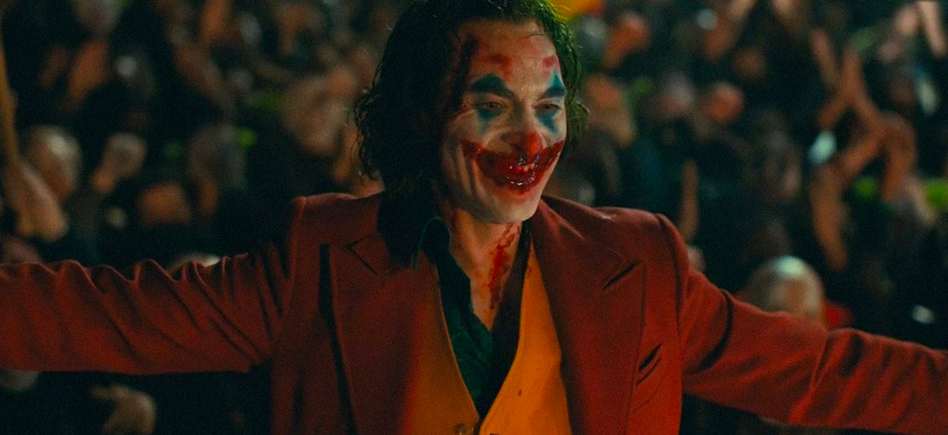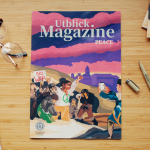Text by Patricia da Matta
The last weeks of October 2019 have been marked by a series of manifestations by civilians in different parts of the world, notably Chile, Lebanon and Hong Kong. Naturally, their motives and claims are just as diverse as the social, cultural and political contexts these people are in. However, a popular figure has (not so) coincidentally become a symbol in each of those events: the famous comic book character known as “the Joker”.
But what has the Joker to do with the financial crisis in Lebanon? Or the claims for the better social policies in Chile? Does it really relate to Hong Kong’s clashes against Chinese rule? How can people with such different cultural backgrounds resort to the same American-made character to represent their sorrow? The answer lies in the complex relationship between globalization and culture.
According to several news reports, the characteristic colours and lines of the clown-villain appeared in masks, face paint and graffiti drawings on the walls often associated with declarations of protest against neoliberal policies adopted by governments in disregard of social welfare. The inspiration for this had come just days before with the premiere of the movie ‘Joker’, nominated for 11 Academy Awards (for which Joaquin Phoenix won Best Actor), in cinemas all around the globe. The film presented the known Batman series’ villain now depicted as a tormented man experiencing the chaotic environment of fictional Gotham City. France 24’s coverage of the protests includes an interview with author William Blanc in which he attributes the film’s “evocative power” to the fact that it would “echo an unwillingness to perpetrate an inflexible and non-inclusive political system”. After all, Gotham City is the epitome of the capitalist society – a place where major corporations control the economic and political relations, where inequality generates violence and division between social classes and where the less privileged are neglected and explored for basic needs.
Another crucial factor that contributes to the emphatic response towards the character is that, for the most part of the movie, Arthur Fleck struggles with fair employment before becoming the Joker. He works in the streets dressed as a clown, without any labour rights and or job security. In this context, he relates to the ‘precariat’, a new social class that is ever-growing in the globalised world and is characterised by, in the words of Standing, “chronic insecurity, detached from old norms of labour and the working class”.
It is notable that the asymmetry between nations set by capitalist society often leads to reinforcing influence from most established economies over others. This might contribute to understanding how values nurtured in Europe and the United States are adopted elsewhere with less resistance than if it was the other way around.
The Joker as an American product has influenced people in Lebanon and so forth, but one can also infer that the people in Lebanon, after resignifying what the character represents, have perhaps inspired others to do the same. The great popularity of the character resides also in the fact that it has been featured as one of the key antagonists of superhero Batman, whose original platform was a comic book in 1940. Comic books and the super-hero stories have for decades been a part of the declared ‘pop culture’ in different parts of the globe, commonly associated not only as an Americanized type of product but also with great influences of other cultures, notably Japanese ‘animes’ and ‘manga’.
Another interesting aspect of culture in globalisation is its political reach. The “hero narrative” is the perfect example of a cultural product being explored for political purposes. It relates to “soft power”, where influence is exercised as a form of coercion as opposed to military force. In this context, culture has proven to be highly effective in order to project a certain imaginary regarding nations. Comic books, for instance, are recognised as a crucial tool for the global imaginary of “good versus evil” in between wars, placing the American heroes as “champions of the land of the free and the home of the brave”.
Furthermore, it is impossible not to mention the increased velocity in which such associations occur due to the interconnected networks of the global world. As most Hollywood productions starring famous actors, the film was quickly being advertised, reviewed and shared in media platforms and social forums. The mechanisms of film distribution and internet-based platforms such as social media vastly empower the circulation of information, rapidly turning something that would be of local or regional interest into a global phenomenon. The same happened previously with the recurring appearance of the Guy Fawkes mask in protests after the release of the movie ‘V for Vendetta’ and later with Spanish TV series ‘La Casa de Papel’.
Globalization has a great impact on culture and vice versa in both regards to its ability to influence behaviours and reflect upon the reality of the global world. It transforms and is transformed by the velocity and dynamic interactions of the network society. The appearance of ‘Joker’ references in protests in different parts of the world just days after the release of a new Hollywood blockbuster suggests an intertwined relationship between producers and consumers in a global context. The fact that people from different nationalities can relate to an American fictitious character’s struggles through life suggests that certain aspects of their realities are shared.





